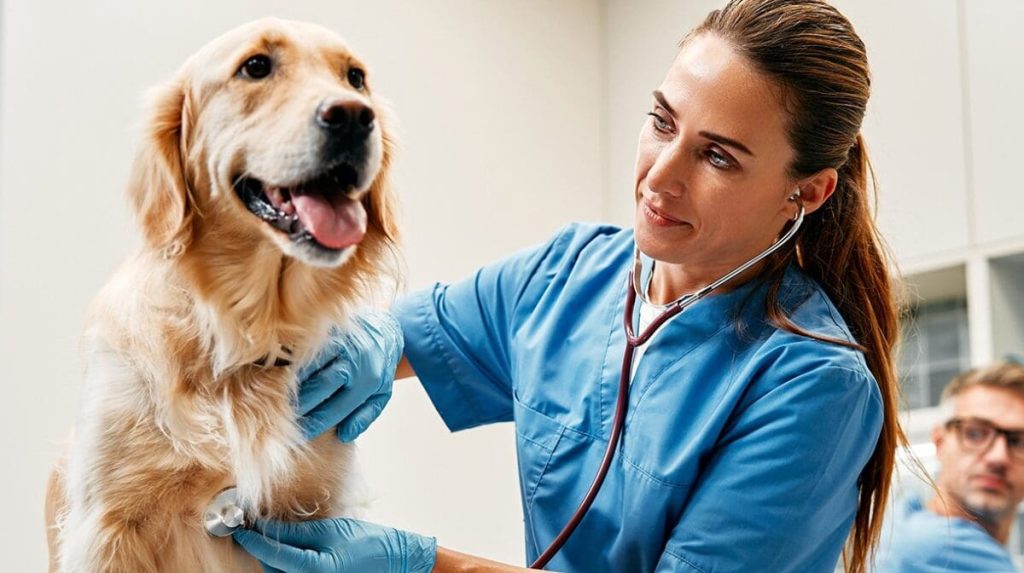
Considering a degree in animal science? If so, you’re likely excited about the idea of graduating, applying for jobs, and actually caring for animals in the field. Before you can get to this point, though, there are some steps all animal science students should take to optimize their career prospects and make the most of their degrees.
Introduction: Beyond the Classroom
Although you may spend a fair amount of time in class learning the ins and outs of animal ethics, animal care, and animal nutrition, the reality is that there is a vast range of exciting opportunities available to animal science students outside of their traditional coursework.
Getting involved in animal science outside of class can be a great way to acquire practical experience while developing a well-rounded skill set.
Animal Science Internships: Gaining Hands-on Experience
While you’re in school, you might consider applying for internships that allow you to gain hands-on experience working with animals and making a difference.
Types of Internships
Numerous types of internships are worth exploring in animal science, depending on where your skills and interests lie. Examples include:
- Research internships, where you can directly assist with laboratory or field research projects.
- Veterinary internships, where you can shadow veterinarians and gain exposure to clinical practice.
- Animal care internships, where you can work in a zoo, aquarium, sanctuary, or shelter to provide direct care to animals.
- Industry internships, where you can explore opportunities in animal production, agriculture, or even pharmaceuticals.
Finding Internships
So, how do you go about finding animal science internships? Start by connecting with your college’s career services center, as they may already have programs set up to help with internship placement.
Additionally, online job boards can be an excellent source of internship opportunities, as can your college professors or other industry professionals with whom you have a connection. In certain cases, reaching out directly to animal welfare organizations or other businesses to inquire about internships can lead to opportunities as well.
Benefits of Internships
Gaining internship experience while studying animal care helps students apply classroom concepts to real-world settings, which can improve comprehension and retention. Meanwhile, internships allow you to develop your practical skills while building professional networks that help you establish meaningful connections in the industry. Of course, having animal science internships on your resume could also increase your employability after graduation.
Exploring Other Extracurricular Opportunities
Joining clubs and student chapters of professional organizations can offer opportunities to connect with fellow animal science enthusiasts and offer you the chance to network in the field. In addition to getting involved in clubs and applying for internship opportunities, you may want to explore some other extracurriculars during your time in an animal science program as well.
Volunteering
Consider volunteering your time to work with an animal rescue organization, wildlife rehabilitation center, or related facility as a means of seeing how these operations work firsthand. Additionally, you might volunteer to help out with community events related to animal welfare, animal ethics, or animal care to acquire hands-on experience while demonstrating your commitment to the field.
Research Projects
During your time in school, you might also choose to conduct independent research in the field or even assist faculty members with their ongoing projects and research. Getting involved in research develops and strengthens your own critical thinking, data analysis, and scientific writing skills while contributing to new knowledge in the field.
Conferences and Workshops
You can attend various industry conferences, workshops, and other large events to learn about the latest advancements and news in animal science. These also serve as a wonderful opportunity to network with experts in the field or even present your own research findings. Some of the most popular animal science conferences to explore include:
- International Conference on Animal Science and Veterinary Medicine
- World Congress on Animal Science and Veterinary Medicine
- International Conference on Zoology and Animal Science
Animal Ethics: Developing a Responsible Approach
No matter where you see your future in animal science, at the heart of it all is the concept of animal ethics. As you progress in your studies, you’ll build your understanding of the ethical considerations surrounding the use of animals in research, agriculture, and entertainment.
By taking the time to explore different perspectives on animal welfare and animal rights, you can gradually establish your own personal philosophy on ethical animal care and treatment that you can carry with you into your career.
Caring for Animals: The Heart of Animal Science
At the end of the day, caring for animals is all about understanding their basic needs, including their needs for nutrition, housing, and healthcare. In your animal science program, you’ll learn about animal behavior and how to handle animals safely and humanely while expanding your ability to recognize signs of stress, illness, and injury in animals. Over time, you’ll develop compassion and empathy for animals and their well-being that you can use to make a difference in the field.
Conclusion: Shaping Your Future in Animal Science
As evidenced above, there are plenty of exciting ways to get involved in animal science beyond the “typical” classroom experience. Although this doesn’t negate the value of your degree coursework, taking the time to gain hands-on experience in the real world can set you up for success later on — and make it easier to apply what you’ve learned in the classroom.
Still looking for the animal science degree program that’s right for you? The online Bachelor of Science in Animal Science at Unity Environmental University seamlessly blends versatility with specialized knowledge in sustainable animal practices, preparing students for rewarding careers in the field. Get in touch today to learn more about our animal science degree program, or get started with your online application!



